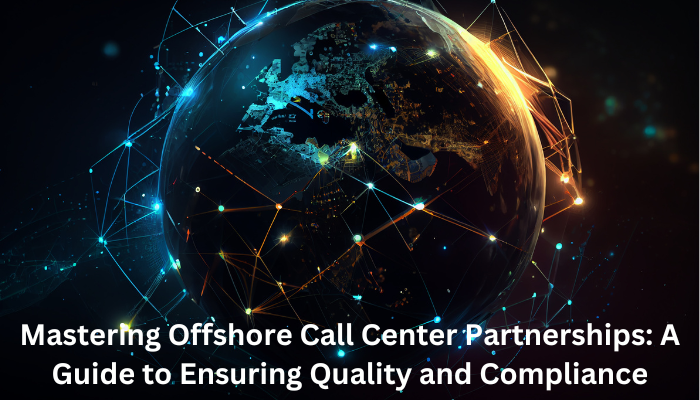
Mastering Offshore Call Center Partnerships: A Guide to Ensuring Quality and Compliance
May 2, 2024 Comment off
Vetting offshore call center operations is crucial for maintaining service quality and ensuring compliance. The selection process involves evaluating multiple factors, from cost and efficiency to compliance and cultural fit. Here’s a comprehensive guide to help businesses evaluate and select the right offshore call center partners:
1. Cost Efficiency
One of the primary motivations for offshoring call center operations is cost reduction. Labor costs, which can be significantly lower in offshore locations, are a major component of overall savings. However, it’s important to consider other associated costs such as training, technology, and potential tariffs or legal fees.
2. Staffing and Management
Offshore BPOs handle the recruitment, training, and management of call center agents. This offloads a significant burden from the parent company but also requires ensuring that the BPO can maintain high standards of service quality. This includes having robust processes for performance analysis, agent scheduling, and ongoing training.
3. Technological Capabilities
The ability to manage high volumes of calls efficiently using advanced software tools is another critical criterion. Many offshore call centers are equipped with the latest technologies in call management, recording, and analytics, which can significantly enhance service delivery.
4. Regulatory Compliance and Security
Compliance with international standards and local laws is imperative. This includes data protection regulations, labor laws, and industry-specific regulations. Offshore centers may face challenges in maintaining compliance with the stringent standards required by businesses in the U.S. or EU, for instance.
5. Quality Control and Monitoring
Ensuring the quality of service is consistent and meets the company’s standards involves implementing rigorous quality monitoring practices. This includes continuous call monitoring, use of quality management software, and regular performance evaluations.
6. Cultural and Linguistic Alignment
The offshore team must be able to communicate effectively in the language(s) of the customer base and align with their cultural expectations. Misunderstandings due to language or cultural differences can lead to poor customer service experiences.
7. Business Continuity and Scalability
An effective offshore call center operation should provide seamless service round-the-clock and have the ability to scale operations up or down based on business needs. This includes having multiple geographic locations to ensure business continuity in case of local disruptions.
8. AI and Automation Integration
The integration of AI technologies, such as chatbots and sentiment analysis tools, can improve efficiency and customer engagement. It’s crucial that these technologies are implemented thoughtfully to balance automation with human touch.
9. Legal and Ethical Standards
Navigating the legal intricacies and maintaining high ethical standards are essential, especially when dealing with sensitive information or markets with stringent regulatory requirements.
10. Long-term Partnership Potential
Evaluating an offshore call center is not just about immediate needs but also its potential as a long-term partner. This includes assessing the stability of the provider, its track record in innovation, and its ability to adapt to changing business environments.
Choosing the right offshore call center partner is a multifaceted decision that impacts customer satisfaction, compliance, and ultimately, the bottom line. It’s essential for businesses to conduct thorough due diligence and consider all these factors to ensure a successful partnership.